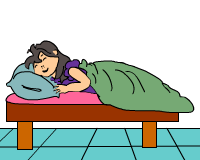
In the 21st century, everyone is so busy. All of us, no matter our age or profession, have so many things to worry about—promotion at work, paying the bills, looking after the kids, saving up for college, doing well in exams, and so on. The stress that comes from this pressure can have many lasting negative effects on you; affect your mental health and relationship with loved ones, making you feel exhausted and irritated most of the time. Most of us don’t act on removing that stress from our lives because we don’t have the time for it but over the time minor changes in your lifestyle can make amazing improvement in your mood and make your life better.

Here are some things you can do to improve your overall mental health and reduce stress:
Increase Your Physical Activity
It has been established beyond doubt that physical activity plays the most important role in ensuring both physical and mental health. As per American Psychological Association, exercise  can relieve stress, reduce depression and improve cognitive functions. 62% of the people who did exercise to reduce stress found it effective against 33% and 29% who found watching TV and going online effective respectively. But not all of us are able to take time out for workout every day. However, in order to deal with stress, you don’t need a dedicated hour at the gym. Short spans of physical activities that can raise the heart rate are perfect especially if these constitute more than 30 minutes of your day’s time. This can be ensured by:
can relieve stress, reduce depression and improve cognitive functions. 62% of the people who did exercise to reduce stress found it effective against 33% and 29% who found watching TV and going online effective respectively. But not all of us are able to take time out for workout every day. However, in order to deal with stress, you don’t need a dedicated hour at the gym. Short spans of physical activities that can raise the heart rate are perfect especially if these constitute more than 30 minutes of your day’s time. This can be ensured by:
- Taking stairs instead of elevator/escalator
- Walking/Cycling to the grocery store.
- Dancing around in your free time if you enjoy doing that.
- Just pace around whenever you can.
- Take time out for workout or your favorite sport on weekends or whenever possible.
Replace your fast food
Try and make sure that you get full healthy meals, proper breakfast, lunch and dinner but if for some reason you are not able to do that, make sure that you
- Don’t munch on unhealthy fast foods like pizzas, burgers, street food, etc. Two separate studies conducted in UK and Spain suggested that higher consumption of fast food is linked with higher rates of depression.
- Avoid sugary drinks like cola, sprite, etc. and avoid adding sugar to your drinks like tea or
 coffee. Opt for black tea/coffee or green tea.
coffee. Opt for black tea/coffee or green tea. - Keep a fruit with you in your bag like an apple, pear, banana or guava and vegetables that you can eat raw like cucumber, carrot, etc. so that you can have a health snack whenever need be.
Enhance Your Diet
- Research shows that our diet can influence our mental health, for both good and bad. Fruits and vegetables are associated with better mental well-being, according to recent research from the University of Warwick. That’s important because mental well-being—
 feelings of optimism, happiness, self-esteem and resilience can help protect not only against mental health problems but physical ones as well.
feelings of optimism, happiness, self-esteem and resilience can help protect not only against mental health problems but physical ones as well. - Fatty foods, on the other hand, may increase the risk for psychiatric symptoms by changing the bacteria that live in our gut, according to new A study done with mice showed increased anxiety, impaired memory, repetitive behavior, and brain inflammation as a result of a high-fat diet. Some fats, however, fall into the “good” category. Omega-3 fatty acids such as are found in salmon, for example, may help with some forms of depression.
- Sugar, of course, should have only a minimal place in your diet. Not only can it spark rapid weight gain and an addictive response in some, it has been linked to higher rates of
 depression and can make mental health symptoms worse, according to the National Alliance on Mental Illness (NAMI).
depression and can make mental health symptoms worse, according to the National Alliance on Mental Illness (NAMI). - Have a healthy breakfast that includes all essential nutrients. This is to ensure that you have all the energy you need for the entire day. Include healthy foods like eggs, fruits, vegetables, oats, etc. in your breakfast and avoid things like bread and potatoes.
The 5-minute break
Sometimes when the workload is getting too much to handle and chaotic and you feel like your head is bursting out, make sure you take that much needed 5 minutes break no matter how short you are running on time. This will ensure that your productivity increases and you finish your task without any stress. But what to do with this 5 minutes break?
- Take a deep breath (literally) and just sit quietly for 5 minutes; try not to think about anything at all and this will calm you down enough to be able to continue doing your work.
- Listen to your favorite song. Music has a lasting effect on our mood and listening to calm and soothing music will refresh you.
- Take a walk in fresh air if you have access.

- Call someone you love and talk to them. Call your parents, spouse, children or a dear friend, anyone you know who makes you feel great and loved. They will also appreciate the gesture.
- Spend time with your pet. Pets are known to relieve stress and some domestic animals like dogs are even used to treat patients with severe depression.
- Laugh out loud, even if for no reason at all and not that ‘lol’ you write on Facebook chats, but for real. Laughing is proved to relieve stress.
Manage Your Sleep Time Well
Sleep time and stress are directly related. People who do not get enough sleep are much more likely to be stressed. To ensure that it affects your stress levels the least:
- Try and get enough sleep daily, for most people 7-9 hours do. As per American Psychological Association, people who sleep more than 8 hours a night are less likely to
 report symptoms of stress than those who sleep less than 8 hours.
report symptoms of stress than those who sleep less than 8 hours. - Don’t drink too much caffeine. Caffeine affects both your sleep routine and stress level.
- Sleep for a regular time every day including weekends, for example if you are going to sleep every day at 11 pm and waking up at 7 am for work/school, make sure that this remains your routine even on weekends. This will help you relieve stress.
Take Time Out for Loved Ones
Sometimes things get so busy that we forget to give time to the people who mean the most to us, the people whom we are working so hard for in the first place. This can be a source of great stress, not just for you but for the people you ought to give time to as well. So make sure that you give enough time to your children, parents, and spouse. Even if you can’t afford to vacation with them, make sure you:
- Ask them how their day at work/home/school was and share your day’s stories with them.
- Call them regularly if they live away, even if only for short duration, and ask them how they are doing; share your feelings with them.
- Always attend the important events in your kids’ lives like their first play or dance recitals; it will make you and your kids feel good.
